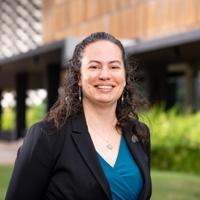The Empathetic Voice Teacher
Tuesday 23rd January 2024, 11:00 AM - 12:00 PM (London Time)
Studies show that empathic voice teachers generate more successful singers. This is unsurprising as empathy is considered to be one of the most important emotional characteristics among teachers as it enables successful communication and connection with students. For voice teachers specifically, empathy is further considered essential for training students both physically and psychologically.
But how exactly do we demonstrate empathy in voice teaching?
Join Dr Heather Fletcher (The University of Melbourne) and Dr Amanda E. Krause (James Cook University) as they delve into the impact empathy has on voice teaching practices. In this session, you will learn how fostering empathy in one-to-one lessons can facilitate the voice teacher’s ability to:
- listen and communicate effectively;
- generate positive, moral, caring, and trustworthy relationships;
- support a student’s ability to cope in the performing arts industry; and
- assist in diagnosing vocal issues in students.
They will further draw on their research on expert voice teachers to discuss how successful empathic teaching facilitates student success. You will learn how to integrate these aspects into your own pedagogy and consider how such skills might benefit your teaching, your studio, and your students.
Dr Heather Fletcher
Dr Heather Fletcher is a lecturer and voice teacher at The University of Melbourne. Her PhD in music psychology focused on the practices of expert voice teachers in Australia and her research has been disseminated in both academic journals and conferences worldwide.
Dr Amanda E. Krause
Dr Amanda E. Krause is a Lecturer (Psychology) in the College of Healthcare Sciences at James Cook University (Queensland, Australia). She also currently serves as President of the Australian Music & Psychology Society.
Sorry, this is an archived short course...
We have plenty of upcoming short courses coming soon. See details of some of them below or look at the full list of short courses.

Thursday 19th February 2026
1:00 PM - 2:30 PM
Thursday 26th February 2026
1:00 PM - 2:30 PM
(London Time)
Performing Pain: Vocal Health in Emotional Roles!

Louisa Morgan
How connected are acted emotions to our real-life emotions? Are they expressed differently? Do they feel different in the body? This 2-part course with Louisa Morgan looks at the potential impact of acted emotion on vocal health, why we should consider it as voice practitioners, and how to care for our performers needing to work with it.


Tuesday 24th February 2026
5:00 PM - 7:00 PM
(London Time)
Incorporating CBT principles within vocal health and voice care

Dr Luke Aldridge-Waddon
Join Dr Luke Waddon as he introduces the principles and techniques within cognitive-behavioural therapy (CBT) in relation to the voice and voice care. He will discuss psychological factors relevant to the development and maintenance of voice disorders and how these might be approached from a cognitive-behavioural perspective. He will describe theoretical concepts and therapeutic components often used within CBT and consider how these might be applied when working with voice users.


Tuesday 3rd March 2026
5:00 PM - 7:00 PM
(London Time)
Sex differences in VOICE!

Dr Richard Lissemore
This two-hour workshop, led by performer, articulatory phoneticist, and voice physiologist, Dr. Richard Lissemore, will examine in detail the role that biological sex plays in the perception and pedagogy of singing voices. We'll consider how parameters such as anatomy, physiology, articulation, resonance, and radiated acoustics influence the perceptions and pedagogical decision-making of singing teachers.

